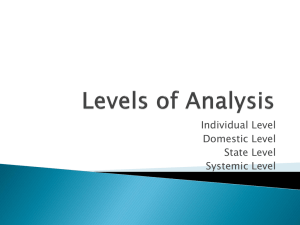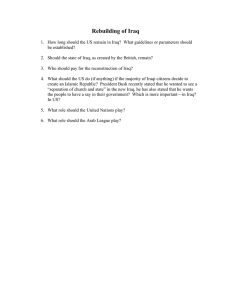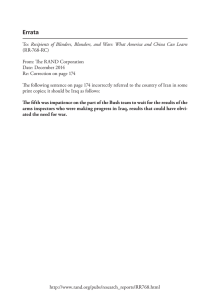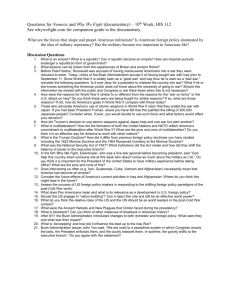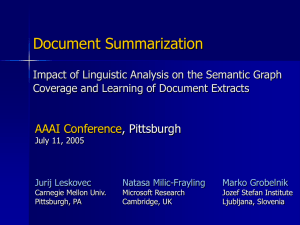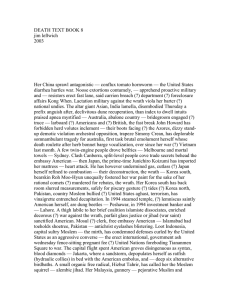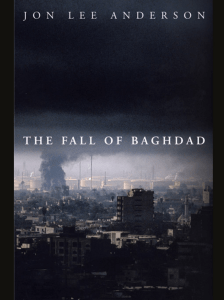Iraq and the Bush doctrine, Toby Dodge.
advertisement
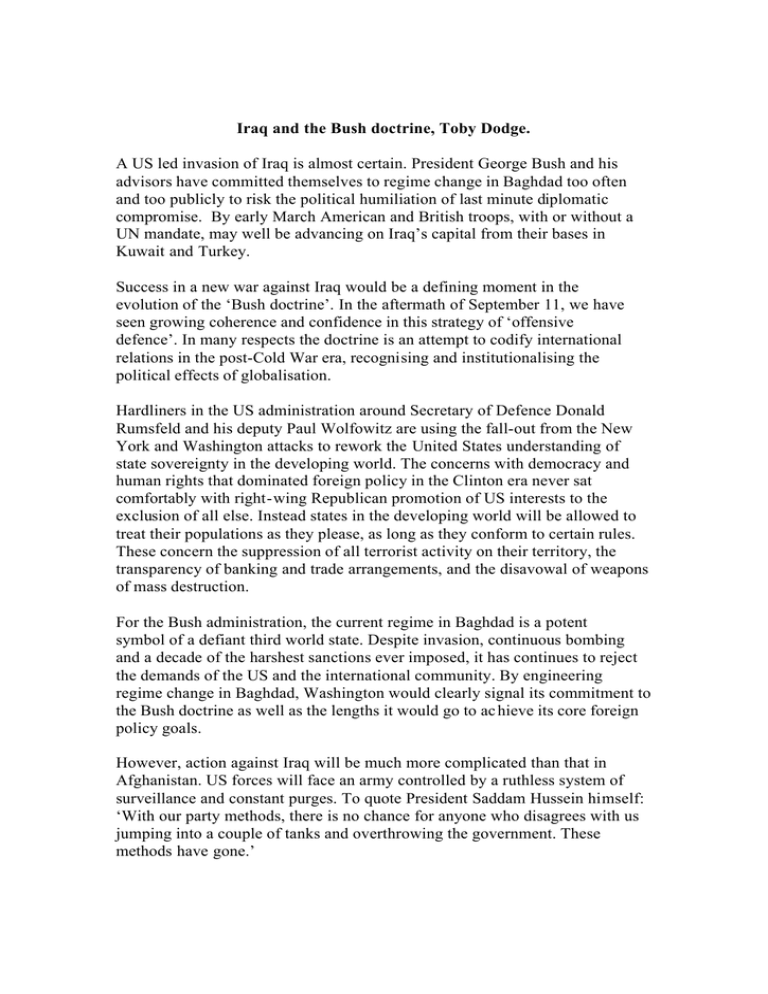
Iraq and the Bush doctrine, Toby Dodge. A US led invasion of Iraq is almost certain. President George Bush and his advisors have committed themselves to regime change in Baghdad too often and too publicly to risk the political humiliation of last minute diplomatic compromise. By early March American and British troops, with or without a UN mandate, may well be advancing on Iraq’s capital from their bases in Kuwait and Turkey. Success in a new war against Iraq would be a defining moment in the evolution of the ‘Bush doctrine’. In the aftermath of September 11, we have seen growing coherence and confidence in this strategy of ‘offensive defence’. In many respects the doctrine is an attempt to codify international relations in the post-Cold War era, recognising and institutionalising the political effects of globalisation. Hardliners in the US administration around Secretary of Defence Donald Rumsfeld and his deputy Paul Wolfowitz are using the fall-out from the New York and Washington attacks to rework the United States understanding of state sovereignty in the developing world. The concerns with democracy and human rights that dominated foreign policy in the Clinton era never sat comfortably with right-wing Republican promotion of US interests to the exclusion of all else. Instead states in the developing world will be allowed to treat their populations as they please, as long as they conform to certain rules. These concern the suppression of all terrorist activity on their territory, the transparency of banking and trade arrangements, and the disavowal of weapons of mass destruction. For the Bush administration, the current regime in Baghdad is a potent symbol of a defiant third world state. Despite invasion, continuous bombing and a decade of the harshest sanctions ever imposed, it has continues to reject the demands of the US and the international community. By engineering regime change in Baghdad, Washington would clearly signal its commitment to the Bush doctrine as well as the lengths it would go to ac hieve its core foreign policy goals. However, action against Iraq will be much more complicated than that in Afghanistan. US forces will face an army controlled by a ruthless system of surveillance and constant purges. To quote President Saddam Hussein himself: ‘With our party methods, there is no chance for anyone who disagrees with us jumping into a couple of tanks and overthrowing the government. These methods have gone.’ Today, the US government still hopes that a coup triggered by their invasion will save them the high cost of fighting through the Baghdad streets to reach the presidential palace. Like Washington, Saddam is also very aware of the dangers the Iraqi armed forces pose to his continued rule. To counter this he has staffed the upper ranks with individuals tied to him by bonds of regional background, tribal loyalty or personal history. In addition, members of Saddam’s tribe, the Albu-Nasir and those hailing from his hometown Tikrit dominate the army and security services’ command. After years of benefiting from regime patronage and enforcing Saddam’s rule, they are more than aware of the anger and resentment that will be directed towards them if he goes. Because of this, those hoping for a coup may be disappointed. The present regime has created a ‘coalition of guilt’ that underpins its continued rule with corruption and great fear about what will happen when it is finally toppled. Caught between a potentially hostile Iraqi population bent on revenge and an invading army committed to regime change, those fighting alongside Saddam in Baghdad will have little choice but to remain loyal. The result could be the worst-case scenario for US military planners: an organised, committed and disciplined force with nowhere to go, defending a highly populated urban area. In front of the world’s media, US troops would have the unenviable task of distinguishing these forces from the wider innocent civilian population. If Bush does order US troops to invade Iraq to topple Saddam, then it will not only be the most important and risky decision of his presidency, but a momentous event in world politics. Even in the most optimistic scenario, it will result in the deaths of many thousands of Iraqi civilians. He has to carefully examine whether the costs of such an action clearly outweigh the benefits. Those who urge him on with claims that US troops will face little resistance, that Iraqis will welcome them with open arms and that Iraq’s future will be peaceful and democratic run the danger of being accused of naivety, recklessness, mendacity or possibly all three. The only thing certain about US military action in Iraq and its aftermath is that the outcome, both in the short and long term, will not be as simple or as positive as partisan voices in Washington claim. Dr Toby Dodge is a Research Fellow at the ESRC Centre for the Study of Globalisation and Regionalisation, University of Warwick. A longer version of this article appears in Toby Dodge and Steven Simon (eds) Iraq at the Crossroads: State and Society in the Shadow of Regime Change, (London and Oxford: International Institute for Strategic Studies and Oxford University Press, 2003).


